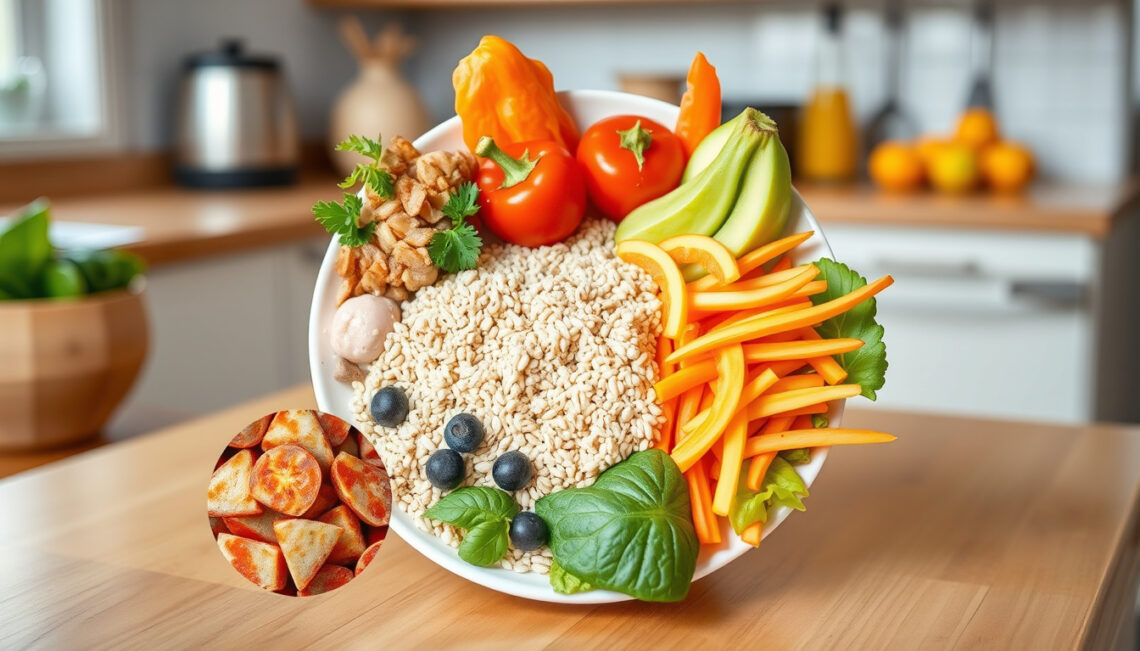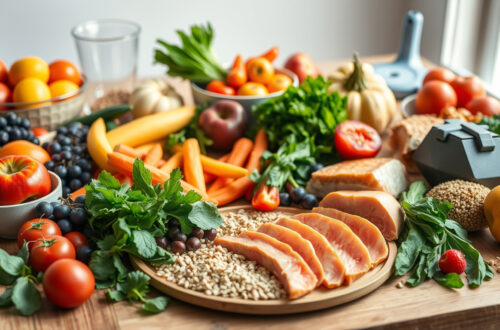
Hey there, friend! 🌟
If you manage hypothyroidism, I bring you a friendly guide on diet plans made for you. I care about the food you eat. This care gives you more energy and balance. Are you ready to start this journey? Let us dive in!
Understanding Hypothyroidism
Before we reach the tasty part—food—we look at what hypothyroidism means. It means your thyroid does not make enough hormones. This can cause tiredness, weight gain, and mood changes. A clear diet plan can help you feel better!
Foods to Eat: Nourishment for Your Thyroid
Good food becomes a friend to your thyroid. With these foods, you feel strong and bright. Try to fill your plate with these items:
1. Whole Grains
Whole grains like quinoa, brown rice, and oats have fiber and key nutrients. They help your digestion and can keep your weight steady. They give you energy for your day.
2. Lean Proteins
Try chicken, turkey, and fish. These proteins help build hormones. Eggs (if you tolerate them) also count as a smart choice for breakfast.
3. Fruits and Vegetables
Fruits and vegetables hold vitamins and antioxidants. Dark leafy greens such as spinach and kale help you. Berries and sweet potatoes add a bright touch. They support your body each time you eat.
4. Healthy Fats
Healthy fats from avocado, nuts, and olive oil help keep your energy up and your body strong. Avocado toast, for example, is a tasteful treat.
5. Dairy or Dairy Alternatives
If you process dairy well, low-fat options supply calcium and vitamin D. If dairy is not your friend, almond milk or coconut yogurt work just fine.
Foods to Avoid: Keeping Your Thyroid in Check
While you fill your plate with good foods, there are some items to dodge. This is like setting safe limits in a good friendship.
1. Soy Products
Soy may reduce thyroid hormone levels in some people. If you like tofu or soy milk, have them now and then.
2. Certain Vegetables
Vegetables like broccoli and cabbage, when raw, may block thyroid function. Cooking them can reduce this effect.
3. Processed Foods
Packaged snacks, fast food, and sweets bring too much sugar and low-quality fats. These do not help your body. Try making simple, quick snacks at home.
4. Gluten
Some with thyroid issues find gluten sparks body inflammation. Try avoiding it and see how you feel. You know your body best.
Building Your Daily Meal Plan
Here is a simple daily meal plan to help you use these ideas.
Breakfast
- Scrambled eggs with spinach and whole-grain toast
- A smoothie with banana, almond milk, and berries
Snack
- A small handful of nuts or a piece of fruit
Lunch
- Quinoa salad with tomatoes, cucumbers, and a small drizzle of olive oil
- Grilled chicken or chickpeas for protein
Snack
- Carrot sticks with hummus
Dinner
- Baked salmon with roasted sweet potatoes and steamed broccoli, with a squeeze of lemon for taste
Listen to Your Body
You know your body best. Write a few notes on how you feel after meals. Do you feel extra energy after a good meal? Or do some foods make you feel slow? Keep track so you can find a good balance over time.
Consult a Professional
This guide is a start. A healthcare worker or a registered dietitian can shape a plan that fits you. They know the details of your needs.
In Summary: A Journey of Discovery
Managing hypothyroidism with food does not have to be hard. With these hints, you can build a meal plan that lifts your mood and supports your body. Enjoy each meal and note the small wins along the way.
Let us keep one another strong with good food and care on this happy path! If you have questions or want to share your own notes, I would love to hear about your journey with hypothyroidism.
Here is to strong health and kind support on this bright path! 🌈





